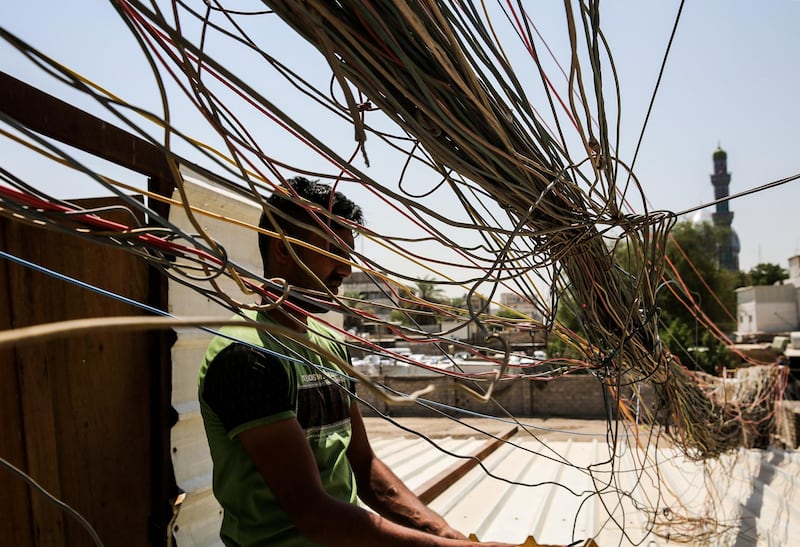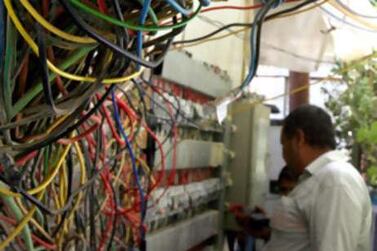Iraq is likely to sign an agreement to rebuild power infrastructure damaged by ISIS in the western Anbar province next month, as the government pushes for a complete overhaul of its utilities sector.
"Currently we are in the final stage to conclude a deal on rebuilding the grid in the western part of the country, Anbar, that was destroyed by Daesh," Iraqi electricity minister Luay Al Khateeb told The National.
The Anbar deal is likely to be signed next month, with all schemes currently under way in the power sector in Iraq due to be completed within 30 months.
On Saturday, Germany's Siemens and Egypt's Orascom Construction signed a $1.3 billion (Dh4.77bn) agreement to rebuild two Iraqi power plants damaged by ISIS, as part of a $15bn road map for the sector.
The firms will undertake rebuilding of the Baiji 1 and 2 plants, which are located 250 kilometres north of Baghdad that will add 1.6 Gigawatts of capacity when completed. The power plants were ruined in the takeover of Baiji by ISIS in 2014-15, which also led to damage to the country's largest refinery — a 310,000 barrels per day facility. Rebuilding the power plants will be critical to getting the refinery back online. It will also help the city's cement factory get back up and running, as well as powering thousands of homes in adjacent areas.
"[This] is part of the road map to rebuild the power sector. This one in specific is focused on liberated province Salah Al Deen," said Mr Al Khateeb.
Work on the Baiji power plants will begin once the contracts are approved by the Iraqi Council of Ministers and the financial agreement is okayed by the finance ministry. Siemens did not disclose the value of the contract. Work on the 1.6GW facility is expected to be completed in 28 months following financial close.
Siemens, German's largest industrial firm, signed a €700 million (Dh2.88bn) agreement in April to rebuild Iraq's power sector as part of a plan to overhaul the country's damaged utilities. Iraq has been courting large multinational energy companies such as Siemens and GE to rebuild its damaged utilities as well as reduce gas flaring, which has led to billions of dollars in lost revenue over the past decade.
As part of the first phase of its $15bn road map, Siemens will build a 500MW gas-fired power plant in Zubaidiya, south of Baghdad, as well as upgrade 40 gas turbines with upstream cooling systems. Siemens will also undertake installation of 13 substations across Iraq.
“The reconstruction of Baiji 1 and 2 power plants mark the second phase of our road map in Iraq and will be the biggest so far in terms of power generating capacity when both plants are completed," said Karim Amin, chief executive of Siemens' power generation division.
Rebuilding Iraq's power infrastructure, damaged by decades of war, is high on the government’s list of priorities. A crippled utilities network was the main factor behind protests across Iraqi provinces during the summer months, when temperatures can easily reach 50°C, occasionally requiring government-mandated holidays to cope with the extreme weather.
Last week, Mr Al Khateeb said his ministry was looking to finance a $3bn upgrade of its power transmission and distribution network as it looks to bring additional capacity on stream to rebuild its infrastructure.
The "fast-track" plan includes $2bn for transmission and $1bn for a distribution network overhaul, which are required "immediately" to ensure the grid is capable of delivering 20 hours of electricity per day across Iraq. The funding is required by October 1to meet targets, which include 22GW of power capacity coming on-stream by June 2020. The ministry has added 19GW of electricity to the grid this year.








